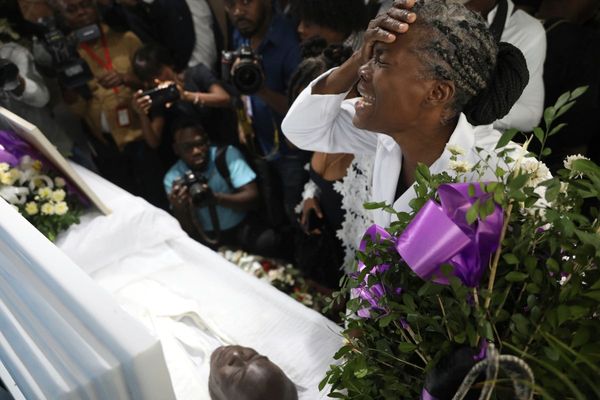KIRKWOOD, Mo. _ The Lutheran Church-Missouri Synod, which is retrenching as it loses membership nationwide, has been named in a lawsuit alleging fraud and other claims stemming from the latest closing of an affiliated university.
HotChalk Inc., a California-based firm that helped Concordia University-Portland develop and support online degree programs, alleges more than $302 million in damages, according to the lawsuit filed Friday in Oregon state court. The Concordia University System and Missouri Synod, both based here, and the Lutheran Church Extension Fund, of nearby Sunset Hills, were also named as defendants.
Concordia University-Portland, which dated to 1905, closed in February, surprising HotChalk. The firm alleges that it was kept in the dark about the abrupt chain of events, including "eleventh-hour giveaways" to divert assets from unsecured creditors.
"HotChalk was not the only victim of Concordia's deceptive and high-handed practices," the lawsuit argues. "Concordia's donors were victims. Concordia's students were also victims."
The lawsuit signals broader struggles. The closure of the university happened after Concordia College Alabama, an historic black college in Selma, shuttered in 2018. Eight colleges and universities remain in the Concordia system, a drop that illustrates the shrinking footprint of the Missouri Synod.
The Protestant denomination has fallen below 2 million baptized members, with hundreds of thousands expected to die off in the next decade or so. The Rev. Matthew Harrison, president of the Missouri Synod, has tried to preserve the church's traditional teachings while wrangling with the realities of a smaller budget.
In early 2018, Harrison told a gathering of church leaders in Indiana that Concordia College Alabama not only struggled financially but hadn't sent anybody to either of the Missouri Synod's seminaries in Clayton or Fort Wayne in a decade. The seminaries, similar to the network of colleges and universities, are supposed to help produce future leaders of the global church mission.
In the speech, Harrison also discussed Concordia University-Portland, where he said he'd put his foot down for allowing a gay student club to begin about eight years prior that ended up flourishing.
"That morphed into a gay advocacy club that was posting trans photos and all kinds of offensive stuff on its Facebook page," Harrison said of the club. What's more, he said, the leader of the group was a young man whose husband was elected student body president.
Harrison said he'd sent a letter to the Board of Regents saying "this must stop" because it is "contrary to the doctrine and practice of the Missouri Synod." He said the university responded by eliminating all clubs and chartering them anew in an "acceptable way."
"They should have just, I think, eliminated all clubs permanently," Harrison said, referencing Concordia College Bronxville in New York, which he said doesn't have clubs.
The student organization in question went public and drew support from the Portland community, which, Harrison said, "is very pro gay." Numerous student internship positions in the Portland public school system were threatened, which Harrison said, could "collapse the School of Education, which could collapse the university."
At the time, he said, the university had a contract for "hundreds of millions of dollars" with a firm that helped develop and support its online graduate degree programs. According to a 2016 report in the Oregonian newspaper, Concordia University-Portland, with the assistance of HotChalk Inc., granted more Master of Education degrees than any other public or private nonprofit school in the country.
In addition to catching the eye of federal regulators, the partnership came at a heavy cost, one that the university allegedly struggled to pay.
"We do have the potential for a $400 million crater," Harrison told the group of church leaders in Indiana in 2018 about what was possibly at stake in Portland. "So it has to be handled very gently, but it finally may be the case that we simply cannot operate a Christian Lutheran university in that context and so we are working on those challenges."
On Feb. 10, 2020, Concordia University-Portland announced it was closing. The university, which had cut some departments in recent years, had roughly 4,000 students, about 70% of them online.
Among the claims in the lawsuit, HotChalk alleges that the Missouri Synod's board approved a resolution in November 2019 "forbidding further extensions of credit" until the university "satisfactorily addressed" the Missouri Synod's concerns about the Gender and Sexuality Resource Center, which provided support services to LGBTQ students on campus, and until the university "brought its bylaws back into conformity with the Synod's bylaws."
Even still, HotChalk alleges that the university assured company representatives in subsequent months that a $4 million letter of credit from the Lutheran Church Extension Fund had been approved and that overdue payments to HotChalk would soon be on the way. Instead, the lawsuit argues, university leaders quietly voted to close on Feb. 7, 2020 _ three days before the public announcement and the same day that the university allegedly transferred more than $30 million of assets to the Lutheran Church Extension Fund in an effort to divert assets from unsecured creditors like HotChalk.
"In choosing to shut down, Concordia walked away from more than $400 million in revenue (as forecasted by Concordia and HotChalk between 2020 and 2024), even though Concordia's expected revenue shortfall was only $3 million out of Concordia's total expected 2020 revenue of approximately $100 million," the lawsuit claims.
The Rev. Thomas Ries, the interim president of Concordia University-Portland when it closed, who is named in the lawsuit, declined to comment Wednesday by telephone. The Missouri Synod also declined to comment about the ongoing litigation other than to say in a prepared statement that it "intends to vigorously defend itself in court against these frivolous claims."
A representative of the Lutheran Church Extension Fund said by email that it "has no contractual relationship or obligations" with HotChalk and that the fund is "merely one of the University's lenders." The representative denied the claims in the lawsuit and vowed that the fund would also vigorously defend itself.
Simply asked why the university closed, the Missouri Synod said through a spokeswoman that it didn't close the facility, rather that the university operated as a separate legal entity, with an independent board.
In the February announcement about the university closing, Ries, the interim president, said: "After much prayer and consideration of all options to continue Concordia University-Portland's 115-year legacy, the Board of Regents concluded that the university's current and projected enrollment and finances make it impossible to continue its educational mission. We have come to the decision this is in the best interest of our students, faculty, staff and partners."
Harrison, president of the Missouri Synod, added then in a prepared statement: "God's plans are not always our plans, and His ways are beyond our searching out. Yet we trust that He will guide us in the days ahead as we commend this situation to His gracious providence and direction."







